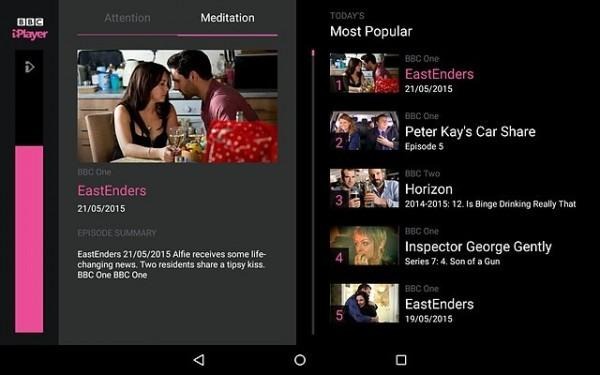BBC experimenting with mind control to change TV channels
Here's an experiment you'd expect to hear about from scientists or a large tech company, not the UK's national broadcaster. The BBC is toying around with the idea of replacing a TV's remote control with a headset that reads users' brainwaves. The project is dubbed Mind Control TV, and uses hardware developed by This Place, allowing users to choose a show to watch simply by focusing their thoughts on it. The BBC already has it working in a limited capacity with iPlayer, the broadcaster's video app.
The headset rests on the left side of a wearer's head, just above the ear, and has two sensors that measure their brain's electrical signals. One clips to the earlobe, and the other rests against the forehead. Users are then able to choose between "concentration" or "meditation" as the input method for the app.
To start off with, users launch the BBC's iPlayer by concentrating on the on-screen option. From there, five shows are presented in an auto-scrolling carousel, pausing on each one for a few seconds. When users decide which one they want to watch, they must "think" or focus on it to make the selection. A visible bar on the left side of the screen fills up as more brain activity is generated, and once it's filled, the selection is confirmed.

The BBC says they are just experimenting with the technology to see what's possible. Interestingly, they don't have some grand vision of a mind controlled future that you'd expect to find in sci-fi movies, rather they want to see if the technology can be used to help people with physical disabilities, such as those that limit motor skills or range of movement. Ideally it would make it easier for these people to access content online.
SOURCE: BBC
MORE: This Place
